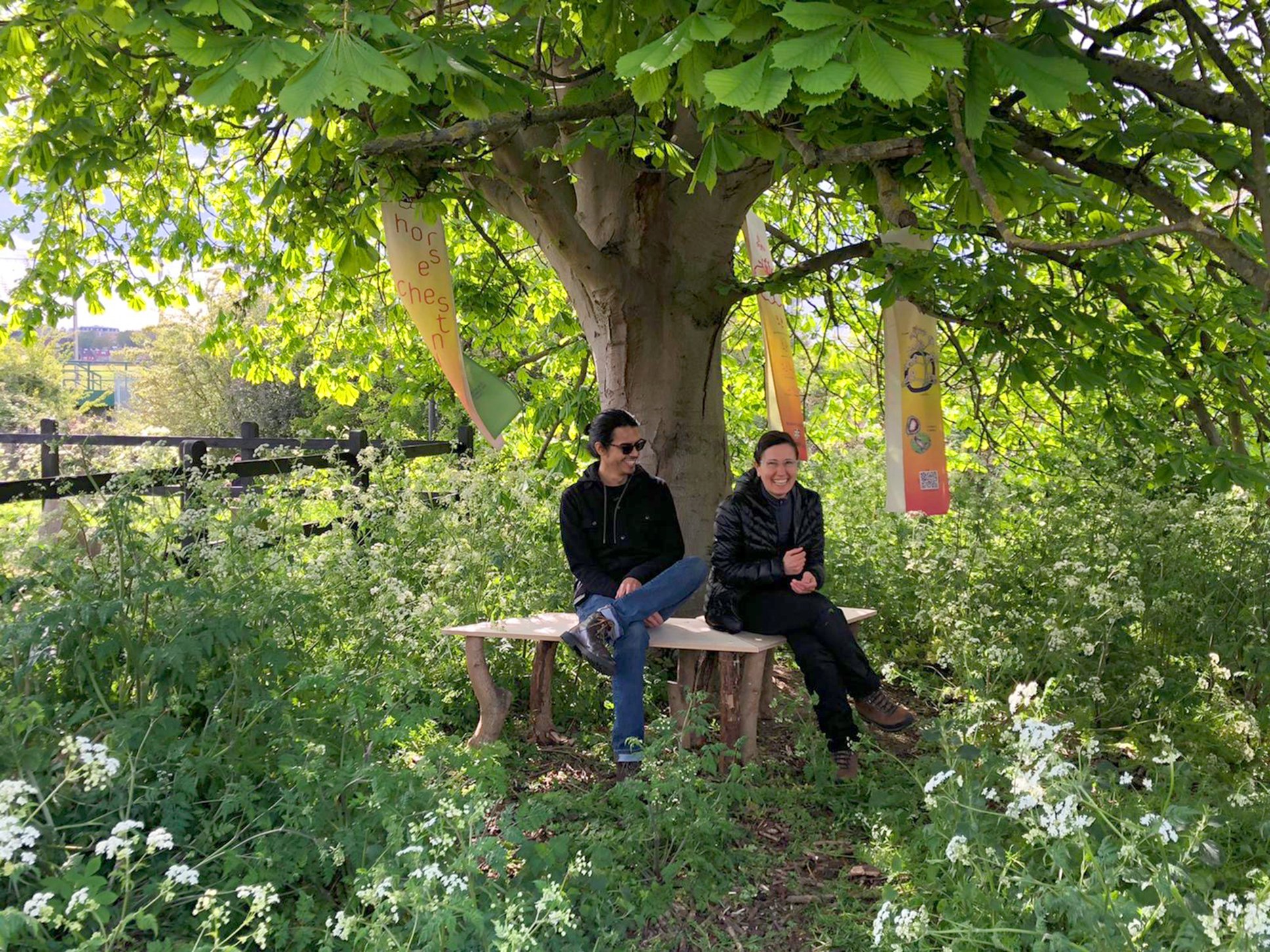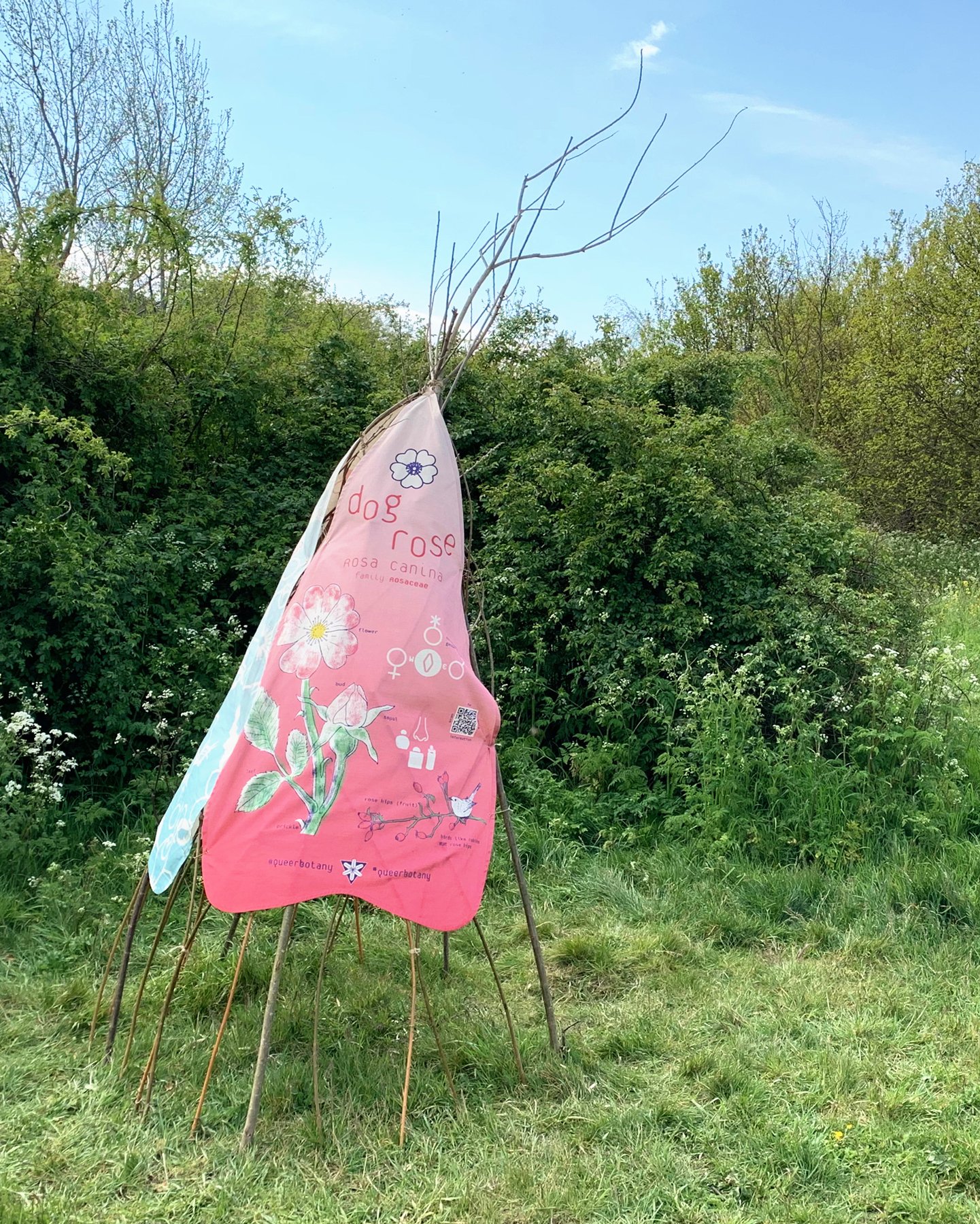Walthamstow Marshes
Horse chestnut tree interpretive display and benches rendering.
Queer Botany is a tour with a series of outdoor interpretive displays that tell stories about plants from marginalised perspectives. The focus is on such site-specific wild plants as the dog rose, horse chestnut, coppiced willow and yellow flag. Participants can either learn about them on the project website, find the displays on their own, or be part of a guided tour at the Walthamstow Marshes, northeast London.
The primary audience is the 18-30-year-old east London LGBTQ+ community, interested in environmental issues. The project emerges from the theoretical lens of queer ecology, which brings together queer theory and eco-criticism. A queer ecological perspective can help displace the dualities that are perceived to exist in culture and nature, preferring instead to insist on multiplicity and diversity. The aims are to share marginalised perspectives, support more diverse representations about the environment and outdoors and affirm connections between queerness and nature.
Map of the Walthamstow Marshes with descriptions of plants from a queer perspective risograph printed on recycled paper. Photo by Ryan Powell.
To meet the project’s sustainability goals, it was important to prioritise biodegradable materials. Recycled paper, plant-based textiles, and coppiced wood made for more sustainable materials that minimised the project’s carbon footprint. This was also important as a means of embracing the ephemeral and ever-changing aspect of nature as opposed to the traditional approach to outdoor interpretive displays, which often employs metals, plastic vinyl, and toxic paints in the hopes of lasting forever and needing little-to-no upkeep.
Due to the climate emergency, the subject of ecology is urgent. Talking more about plant species can help improve biodiversity. Through the event in Walthamstow Marshes, we brought people from the community together to discuss the environment, informed people on queer ecology, shared marginalised LGBTQ+ stories, and brought attention to wild plants in the Marshes. Plants hold a wide variety of stories to be explored through narratives new and old.
For those not on the guided tour, the visitor can scan the QR code, where they are taken to the project website page about the dog rose with the overarching story, extended text, audio description, and more information. Photo by Ryan Powell.
COLLABORATORS
Designer
Sixto-Juan Zavala
Botanical and Horticultural Consultancy
Sophie Leguile
Botanical Consultancy
Lizzie Roeble
Writing
Kiron Ward
Concept Development and Installation
Lucy Hayhoe
Making and Installation
Rosa Pascual
Spatial Design
Phark Lertchanyakul
Sewing and Pattern Cutting
Leanne Finn-Davis
Film
Sally Ashby
Installation
Jess Barter
Installation
Haruyasu Yanagi
Installation
Callum Murphy
Special Thanks
Xavier Llarch Font, Beth Shepherd, Tricia Austin, Andy Stevens, Claire Healey, Tom Butler, Kevin Flude, Eamonn Lawlor, Jessica Whitehead, Matt Purkis, and Cath Patrick










